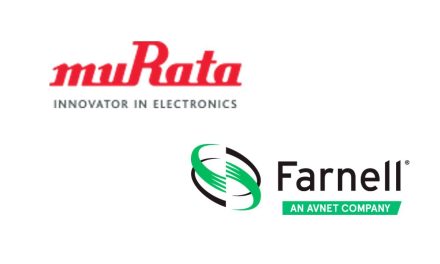Itron explores the advances of smart metering currently being supported by Government but led by industry.
There is increasing focus on energy saving within the agendas of politicians and world leaders, which has led to a number of programs of work which have global reach. The old mantra of “you can’t manage what you don’t measure” is by all accounts somewhat hackneyed, but rings true in the context of smart metering and the global project to conserve our planet’s resources.
Within Europe, virtually all member states are looking to start the roll out of smart meters and smart grids in the next five years and some have already started, such as Italy, Spain and Sweden. Others are on the starting blocks poised to commence, such as the UK, Netherlands and Germany. This will lead to growth in the metering devices market to the tune of around 250 million units over the next 10 years plus additional markets for in home display devices and energy services. Smart metering innovators are not springing up by accident, but by the intention of the European Commission leading from legislation such as the Energy End-Use and Energy Services Directive*. In addition to the “ESCO Directive” there is more recently the 3rd Energy Package which points towards smart grids, and the need for an intelligent power network to allow an open energy market across Europe.
EU member states have committed to rolling out “intelligent metering systems” to at least 80 per cent of domestic electricity consumers by 2020 following an assessment of costs and benefits. The UK has one of the most aggressive timelines with 26 million homes to be fitted with smart gas and electricity meters by 2019. It is clear that the government is very serious about speeding up the timescales for the smart meter roll out in order to maximise the benefits for consumers in energy savings, and for suppliers and agents in operational cost savings. A huge amount of effort, time and money has been put into the smart metering programme from government and much more so by industry.
The responsibility of the roll out in the UK falls to energy suppliers. They are looking for technology that is up-to-date and meets the current Smart Metering Equipment Technical Specifications (SMETS) and that also has the flexibility in the long run to be firmware or communications-upgraded to reduce asset losses. Open standards and interoperability will be the key here. They will allow utilities to install technology from any vendor, safe in the knowledge that it can be slotted into the smart metering system and infrastructure. Open communications standards will also allow the UK’s competitive market to function efficiently and permit the most appropriate display devices to be used for different consumers. Utilities will only be willing to commence large scale meter installations when there is certainty in technology. This assertion is facilitated by fully compliant capable meters, and a communications specification with a certification platform to ensure full interoperability.
For the last four years there has been a constant program of engagement workshops, working groups, and consultation meetings, in order to lead the Department of Energy and Climate Change to a coherent set of metering and system specifications for the smart meter roll out. Despite this enormous effort there is still uncertainty in the market around purchasing expensive metering assets when interoperability specifications are no more than at the functionality level. Industry working groups such as SSWG, BEAMA and the ZigBee Alliance , of which Itron are members, have been making large strides in this area, mainly using the common languages of DLMS-COSEM (WAN) and ZigBee Smart Energy (HAN). These protocols haven’t been officially confirmed as the preference for the UK market but they are what currently represent the closest match to the government’s requirements by some considerable margin.
In order for manufacturers to produce interchangeable products, there needs to be a very tightly controlled set of companion specifications, underpinned with a certification scheme to prove that the requirements for interoperability have been met. The writing of these very technical documents needs to take place within consensus-based standardisation organisations, by subject matter experts with real product experience and not by government motivated by early project delivery at the expense of quality.
For the attainment of an effective, intelligent energy infrastructure the smart metering roll out needs to be an industry programme facilitated by government and not a government programme facilitated by industry.
Companies such as Itron are developing future-proof platforms that can be the foundations of a smart grid while representing a low investment risk. The company supports the research that shows the smart grid truly can provide environmental benefits through demand reduction, renewable integration, and efficiencies. It insists however that these benefits cannot be achieved without a well-engineered grid and consumer education and involvement. No amount of machine control can raise awareness and change habits. Itron advises that the true benefits of smart meters are closely linked to the education of consumers and support of utility companies.
In summary, the smart metering roll out in the UK is a challenge, due to the complex and fragmented nature of the market. However the benefits on offer for the consumer and industry alike make the enormous effort well worthwhile. If government continues to provide the right support and direction without being overly restrictive, then the industry has the experience and knowledge to help evolve the energy sector to a smarter future befitting of the 21st century.
*Directive 2006/32/EC of The European Parliament and of the Council of 5 April 2006 on energy end-use efficiency and energy services and repealing Council Directive 93/76/EEC. On 5 April 2006, the EU adopted the Directive 2006/32/EC on energy end-use efficiency and energy services. It includes an indicative energy savings target for the Member States, obligations on national public authorities as regards energy savings and energy efficient procurement, and measures to promote energy efficiency and energy services.
Itron


